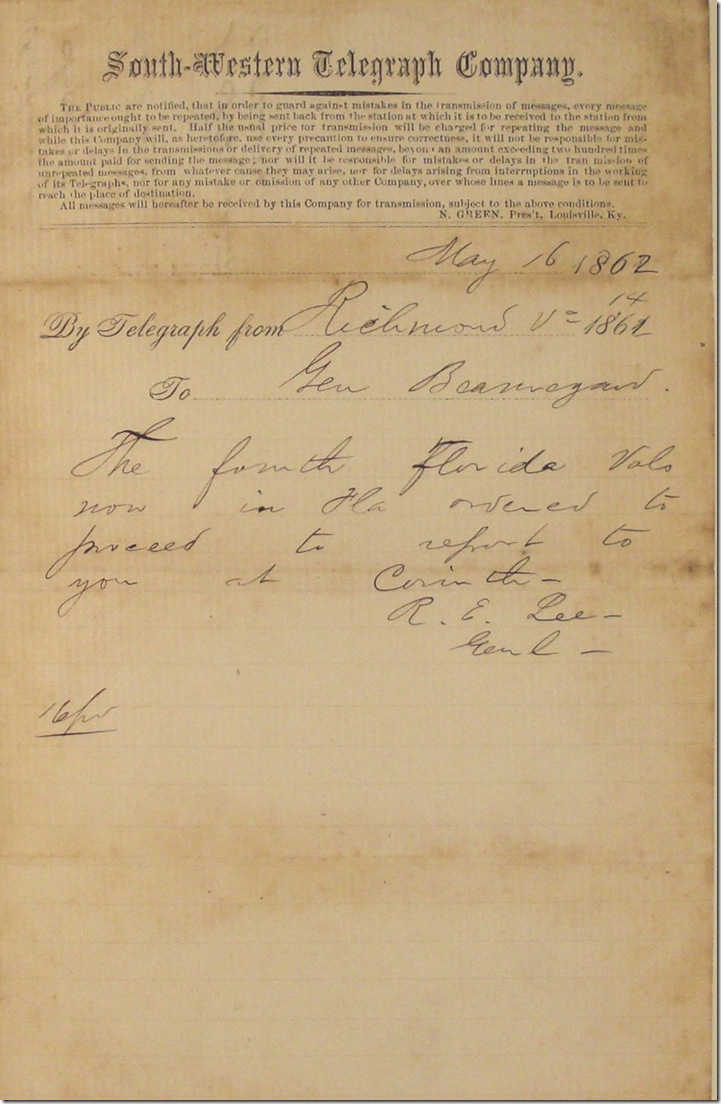Henry and Mary Warner lived in Allegheny City, Pennsylvania, now part of Pittsburgh. They are the great-grandparents of poet Marianne Moore. By the 1860s they had three surviving children: John, Henry, and Anne. Their letters to John, a Presbyterian minister living in Gettysburg, are preserved as part of Marianne Moore’s family papers.


Transcript:
Allegheny City Wednesday May 7th 1862 1 ½ P.M.
Our Dear Children Another week has rolled round and we still find ourselves, all in good health & spirits. Isabella is with Anne, Robert has just left us after partaking of dinner & gone to his place of business Henry is driving away at his business in Sewickleyville; This day Mother has fixed the back parlour fireplace for the summer, no more fire to be there until next fall; Mother has been once with Westby about her teeth he said they were too tender yet, this was about two months since, this day she intended to go over but said she had caught cold, that the gums were tender and would not bear an impression, tomorrow she cannot go as it will be our preparation day previous to a communion Sabbath so that on next Sabbath, if nothing happens to interfere, you and us will be engaged in the same business. On last friday afternoon Miss Mary King & Miss Geddiss called on us as visitors. Mother invited them to take tea but they declined, they stopped about an hour, we were glad to see Mary, had quite a pleasant interview. The wounded soldiers of Pittsburgh landing brought here by Steamboat have caused quite a stir among the benevolent ladies of our cities—In our church we have a society got up for the purpose of administering to the wants of the poor fellows and at the first meeting Mother was appointed as a person to take a leading part in the affair, she at once contended with all her might in opposition but would not be heard and was unanimously forced into compliance—in making purchases such as slippers, domestic muslin for under clothes &c&c—independent of these societies, many ladies go there with delicacies—to the marine hospital, we were told of one lady that killed several chickens and made 3 or 4 gallons of soup took it down with her, gave some of it to those that would have it, who were most grateful for it, said it was the best thing tasted for a long time, a large portion was sent to the kitchen, some few of the patients had not had any and the soup was called for, dont you think the blackguard kitchen girls had gather’d round and drank it, if the animals were hungry there might be some excuse but they were reveling in the midst of plenty, when I heard this, I must confess I was enraged; our ladies carry them dauntless of all descriptions and I am told you never saw creatures so thankful.
I must now tell you an anecdote—Two boats went from Pittsburgh to Pittsburgh landing—brought away a great many—in coming up stream left some at one place & some at another & for instance Lawsville Cincinnati– Marietta, Wheeling, &c&c. A woman from some of the Western states went in quest of her son, visited the field of battle, went to Pittsburgh landing—followed the boats going up stream on the Ohio river, landed at every place on quest of her son where the wounded soldiers were disembarked the whole way up to Pittsburgh the head of navigation, went into our marine hospital looked at the occupants of every bed, in every ward, one after another until she came to the last ward, after looking at several beds came to one, the occupant was laying with his face towards the wall, she gently laid her hand on the bed, still uncertain as to identity, when he turned round & said Oh! Mother—so he will not suffer for a nurse—it almost seems like romance, but true it is: We are in great hopes that by this time Jennie is well, Mother says she will have to be very careful, any cold that ever she gets, will fly to that breast, a great many here has been enquiring about you this spring, remember us most affectionately to Mrs Craig; am happy to inform you house cleaning is over Mother has just been reading the newspaper and is gone to Mrs Kingan for 2 ½ lbs of butter @ 18¢ — 45¢– Dr Rodgers is greatly improved in health but will not be able to speak in publick
Your affectionate father & mother Henry & Mary Warner
Citation: Henry and Mary Warner, autograph letter signed to John Riddle Warner. Allegheny City [Pittsburgh], 30 April 1862. Moore VI:05:06











